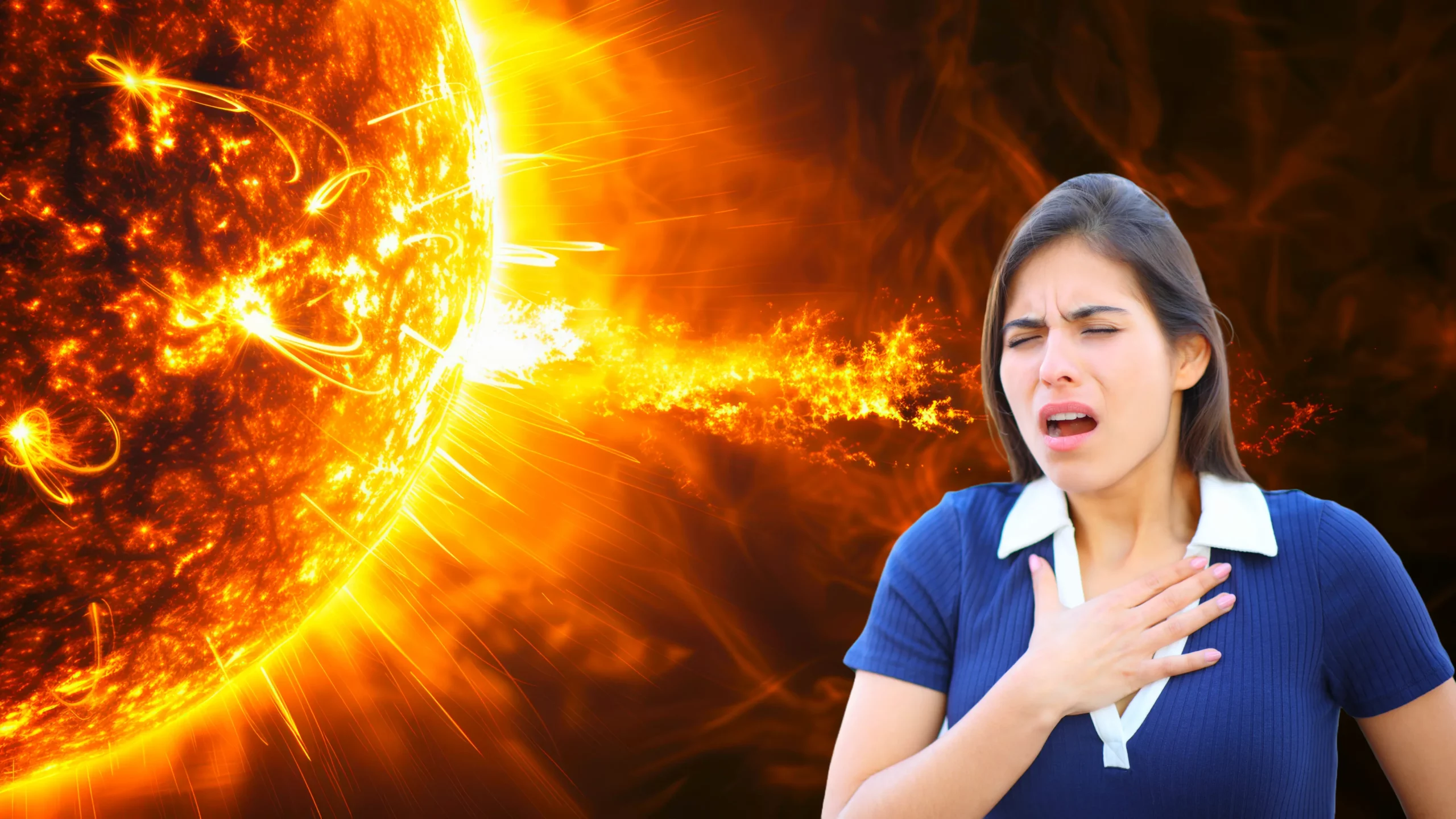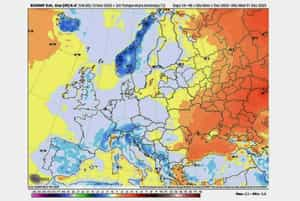
The truth about magnetic storms and human health.
Geomagnetic storms, caused by solar flares and other solar events, have often been blamed for a range of health issues like headaches, fatigue, and anxiety. Yet despite these popular beliefs, science has yet to find any substantial evidence linking magnetic storms directly to physical illness. The discomfort people experience during these events is more likely connected to psychological factors than the sun’s activity.
One key contributor to this misconception is the nocebo effect – the idea that expecting a negative outcome can cause real physical symptoms. If someone believes a solar storm will cause headaches or other ailments, they may actually experience them, not due to the storm itself but because of their expectations. Similarly, anxiety can manifest in the body as real physical symptoms. This connection between the mind and body often explains why people report increased discomfort during periods of solar activity.

A significant number of health issues blamed on magnetic storms are actually idiopathic in nature, meaning they arise without an obvious cause. Idiopathic conditions include a variety of unexplained symptoms, such as chronic pain, fatigue, or dizziness, where no clear medical diagnosis can be established. This uncertainty can lead individuals to search for external explanations, like solar storms, when the root cause may be more internal.
Idiopathic pain syndromes, in particular, are often tied to psychological stress, which can heighten sensitivity to pain or amplify otherwise minor symptoms. Anxiety, for example, can increase muscle tension, disturb sleep, and elevate stress hormones like cortisol, all of which may lead to real discomfort. This doesn’t mean the pain isn’t real – far from it. The pain experienced in idiopathic syndromes is very real, but its origin is often misunderstood. Factors like poor posture, lack of exercise, or even dietary deficiencies can also play a role in idiopathic conditions, though these are often overlooked in favor of more dramatic explanations.
While scientists studying heliobiology – how solar activity impacts living organisms – continue to investigate the sun’s influence, there is little evidence to suggest that geomagnetic storms significantly affect human health. These storms can interfere with Earth’s magnetic field, disrupting satellites and, in extreme cases, power grids. However, their effects on the human body remain minimal. The discomfort people feel during these times is more likely to be driven by internal states such as stress or sleep disruption, rather than any external solar event.
Beyond solar storms, people often seek external explanations for health problems in other areas as well. For instance, there are claims that 5G technology causes health issues ranging from headaches to immune dysfunction.
Others believe HAARP – a research project studying the ionosphere – is responsible for weather manipulation or even “weather warfare”, supposedly causing storms, droughts, or earthquakes. These theories, much like the geomagnetic storm myth, persist despite being thoroughly debunked by scientific research.
Speculative ideas like climate weapons and weather warfare feed into larger fears of losing control over our environment. Much like the claims about solar storms, these theories arise from anxieties about phenomena we don’t fully understand. Yet, the true culprits behind many idiopathic conditions are often more mundane: stress, posture, or lifestyle factors.
Ultimately, attributing pain and discomfort to magnetic storms or other external forces oversimplifies the complex interplay between the mind and body. Research increasingly shows that psychological factors like anxiety and the nocebo effect play a larger role in these symptoms than previously thought. Understanding this can help individuals address the real sources of their discomfort – whether through stress management, lifestyle changes, or medical intervention – rather than looking to the sky for answers.
Gleb Perov is the founder and chief meteorologist of POGODNIK, a leading weather forecasting service in Eastern Europe. With over 15 years of hands-on experience in meteorology and climate analysis, he has worked private weather services.
Gleb is the author of numerous scientific and analytical publications on climate, magnetic storms, and atmospheric processes. He regularly collaborates with major international agencies such as NOAA, ECMWF.





